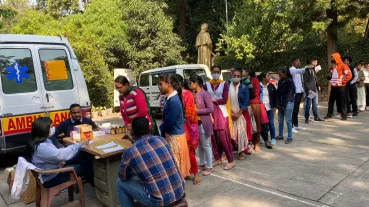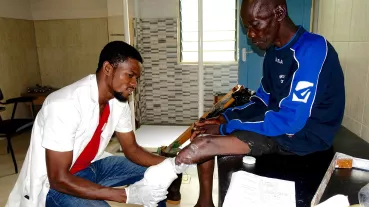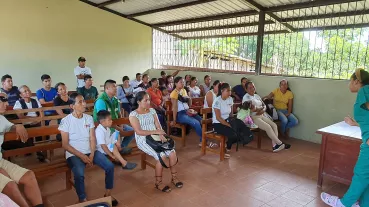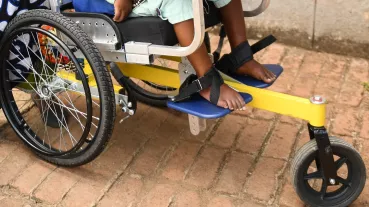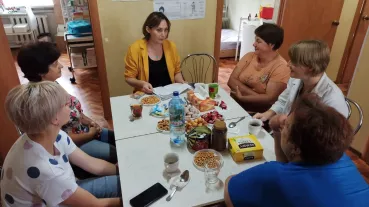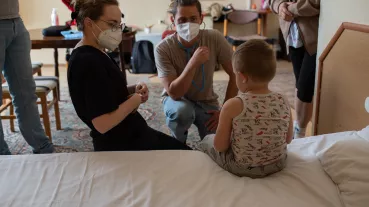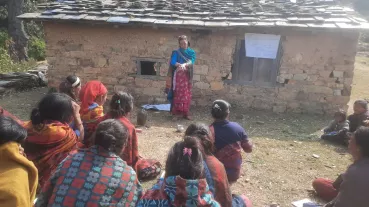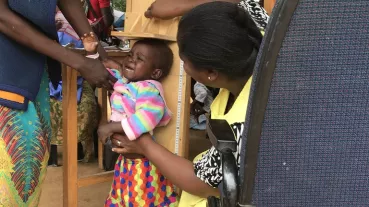Professionalisation and expansion of RESIC's low-threshold primary health care service for disadvantaged groups in Nepalgunj
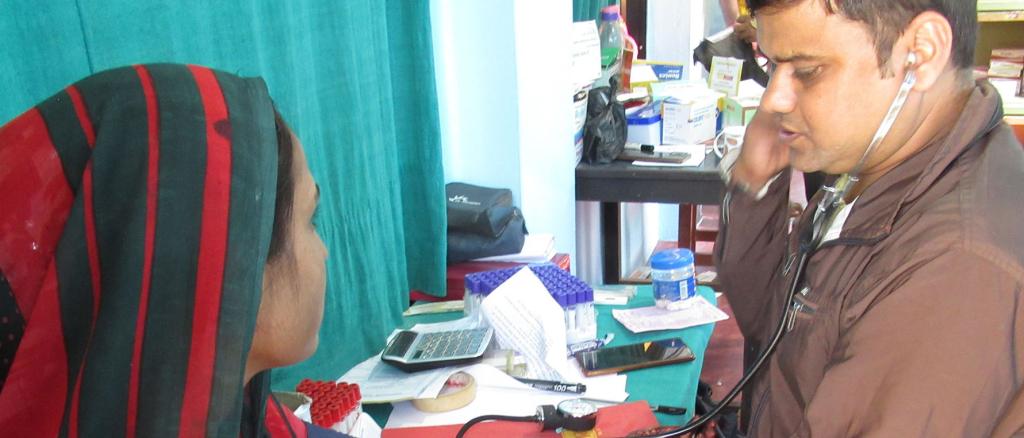
Situation:
In southern Nepal, it is difficult for people belonging to the so-called low castes to get professional basic health care due to discrimination and costs. Many common diseases could be avoided with timely treatment and sufficient information. However, in addition to good staff and equipment, access to the people is often lacking.
Objectives:
Improve primary health care for disadvantaged groups of the local population by expanding and professionalising the primary health care service provided by RESIC.
- Number of new patients, especially in the area of eye care.
- Number of training sessions held for staff
- Number of new cooperation agreements with other clinics and health care facilities
- Conduct Community Health Centre 6 days/week
- Conduct three mobile health camps per year
- Establishment of a unit for the examination and treatment of eye diseases within the clinic and expansion of the health camps to include the possibility of eye examinations and treatments
- Co-operation with other hospitals and specialist clinics for further treatment and the performance of operations
- Information events for patients and training for staff members
RESIC's offer gives access to professional primary health care to a population group that often does not have access to the existing systems. The new opportunity to provide treatment for eye diseases is based on a very strong need. RESIC networks its services with other health care facilities and thus strengthens the local health care system together with them.
RESIC was born out of the needs of its own neighbourhood. The clinic is very small, but still reaches over 5,000 patients a year, many of whom would otherwise shy away from going to a health facility. There is an extremely strong long-standing relationship of trust between the medical staff and the patients, as RESIC knows the background of each family very well. Two-thirds of all people treated by RESIC are women.
Here you can find further information.
